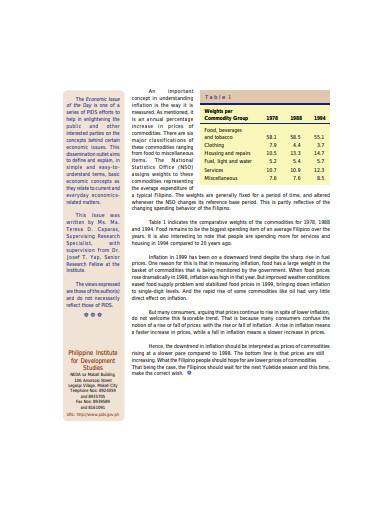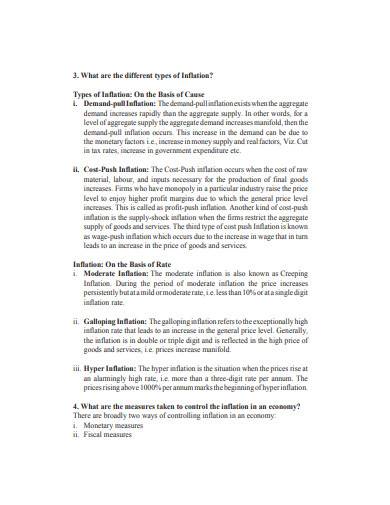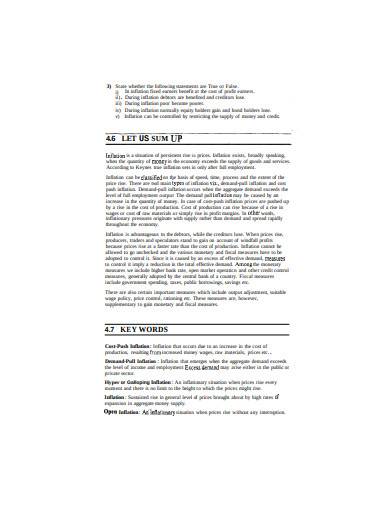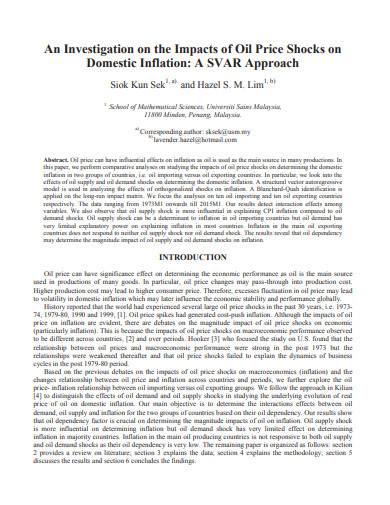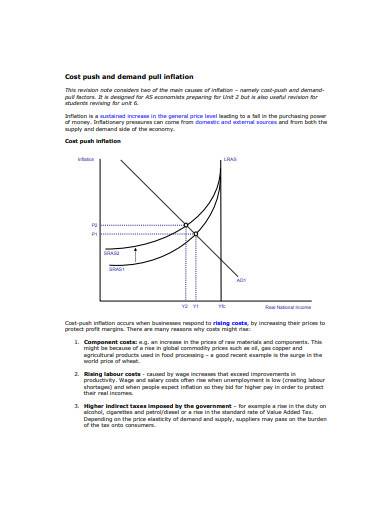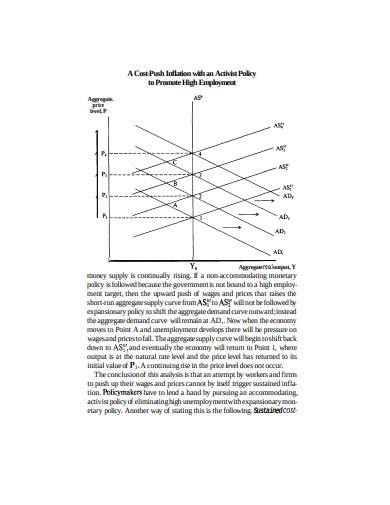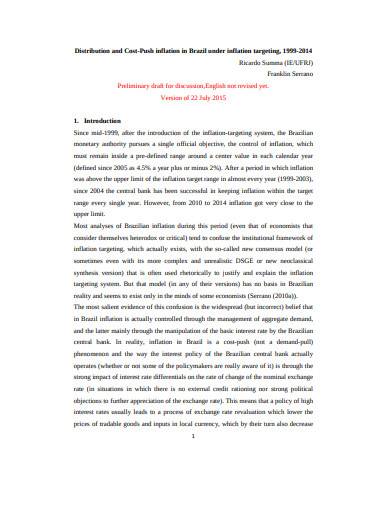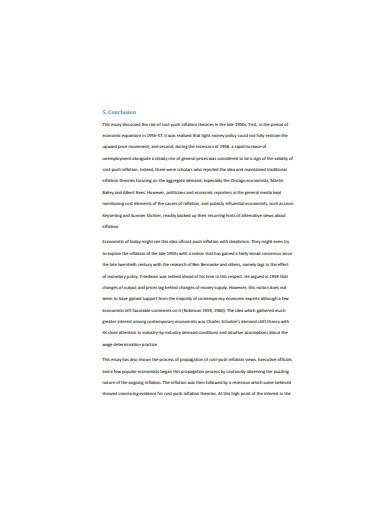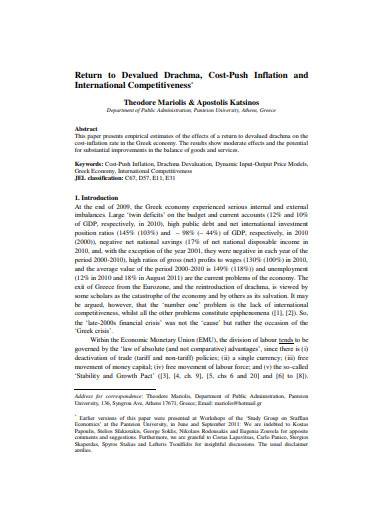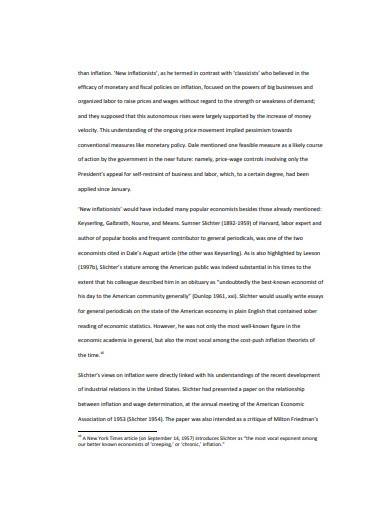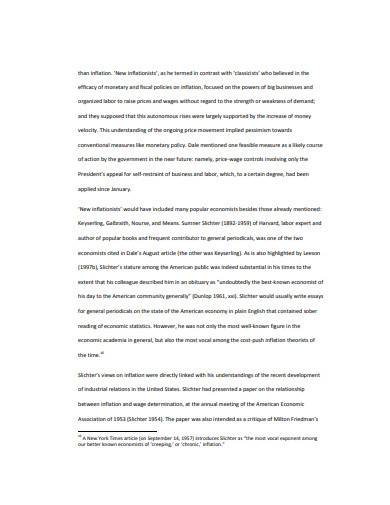At times, due to the high demand for particular products, prices go up. However, that is not always the case. Take the aftermath of Hurricane Katrina as an example. As you might have noticed, the prices of the gas went up to five dollars per gallon despite the constant demand. Thus, we can rule out demand-pull inflation as a reason for this price increase. Then, why did the price increase? It turns out, the hurricane caused immense damage to the gas supply line, which resulted in cost-push inflation. From there it was only natural that many items’ prices on the product list, including the gas, went up.
What Is a Cost-Push Inflation
Inflation, in general, is the increase of goods and services’ prices as a result of the reduction of the purchasing ability of a currency unit. This purchasing reduction event can be a result of an increase in the cost of production, such as raw materials and labor. We can refer to this type of inflation as cost-push inflation.
What Is a Demand-Pull Inflation
Unlike cost-push inflation, demand-pull inflation occurs when demand exceeds the supply. In other words, it happens as a result of a shortage of supply. However, despite the differences in their causes, both demand-pull and cost-push inflations inflict the same effect, which is the increase of goods’ and services’ prices.
What are the Causes of Cost-Push Inflation
Unlike demand-pull inflation, cost-push inflation does not always happen. In fact, it only occurs on the following occasions.
1. Monopoly
For some reason, particular countries and regions allow a company to supply the entire area with its products without a competitor by putting up barrier for potential entrants. We refer to this scenario as a monopoly. As a result, the firm can freely set a price that it desires despite the consumers’ disagreement in the area, which can result in cost-push inflation.
2. Wage Inflation
In recent decades, companies like the Ford Motor Company had to deal with numerous labor unions. These groups represent the common concerns of the employees, giving them the leverage to negotiate with the employers about the employment conditions, such as wages, working hours, and benefits, which cause wage inflation. This type of cost-push inflation cause rarely happens these days, though.
3. Natural Calamities
Natural disasters inflict damages, such as the supply disruption, that we can’t always avoid. These disruptions cause the prices of the goods and services to rise. For example, during typhoons, fishers may not be able to go to the sea, restricting them from getting supplies to sell. To recover from the loss, they will have to increase the prices of the products.
4. Government Regulation and Taxation
In certain countries, the government imposes a high amount of taxes on unhealthy products like cigarettes and alcoholic beverages to encourage lower consumption of them. As a result, the prices of the said products increase.
5. Exchange Rates
As you might have probably known, if a currency’s value falls (depreciation), the prices of imported products increase. Importers intend to earn more profits. Therefore, they will take advantage of these situations, causing the inflation rate to rise.
10+ Cost-Push Inflation Samples in PDF | DOC
Learn more about cost-push inflation by going over the following examples. You can download them in PDF and MS Word formats.
1. Cost-Push Inflation Sample
2. Cost-Push Inflation Template
3. Cost-Push Inflation Example
4. Cost-Push Inflation in PDF
5. Cost-Push and Demand Pull Inflation
6. Basic Cost-Push Inflation Sample
General Cost Push Inflation Example7. Sample Cost-Push Inflation Template
8. Formal Cost-Push Inflation in PDF
9. General Cost-Push Inflation Sample
10. Simple Cost-Push Inflation Sample
11. Cost Push-Inflation in DOC
How to Protect Your Business from Inflation
Whether it is due to demand-pull or supply-push inflation, both may pose a threat to your retail business. Thus, it is essential to incorporate the following practices in your retail business plan.
1. Minimize Your Debt
Bank loans are crucial to finance your business. However, it would also be great if you will strategically plan it by conducting a predict inflation. During the inflations, ensure that you have lesser debts so that you can focus your budget on the production costs, allowing you to produce more goods to sell. You can also use a debt management plan for more effective management.
2. Adjust the Pricing of Your Products
Adjusting the prices of your products may not be your only option. However, if the production costs increase, you will have to implement it to maintain your profit margin. To know the right time to increase your products’ prices, you can use a cost analysis template.
3. Reduce the Expenses
By conducting cost analysis, you can also determine if the production cost of your business exceeds your retail budget. If it does, you may want to find a way to reduce the costs of your business. One way to reduce this cost is to automate some applicable tasks.
4. Optimize the Productivity of Your Business
Lastly, by optimizing your business’ productivity, you can determine the opportunities of the employees to maximize their productivity efficiently, which is a great way to lessen the negative impact of inflation. You can also use an employee performance development plan to help you out in this process.
Cost-push inflation is just one of the factors that you need to deal with in doing business. Fortunately, certain business concepts and government regulations, such as monetary policy, Keynesian economics, and Phillips curve, exist to avoid stagflation or lessen its adverse effects on businesses and the economy itself. In this article, we have also discussed additional information that will allow you to deal with these situations effectively.
Related Posts
Travel Company Profile
Exemption Letter
News Report
Employee Uniform Form
Self-Declaration Form
To Whom It May Concern Letter
10 FREE Notice To Quit Letter Samples & Templates
Security Company Profile
Written Warning
Event Program
OMR Sheet
Building Inspection Report
Employment Certificate
Teacher Lesson Plan
Deed of Assignment

